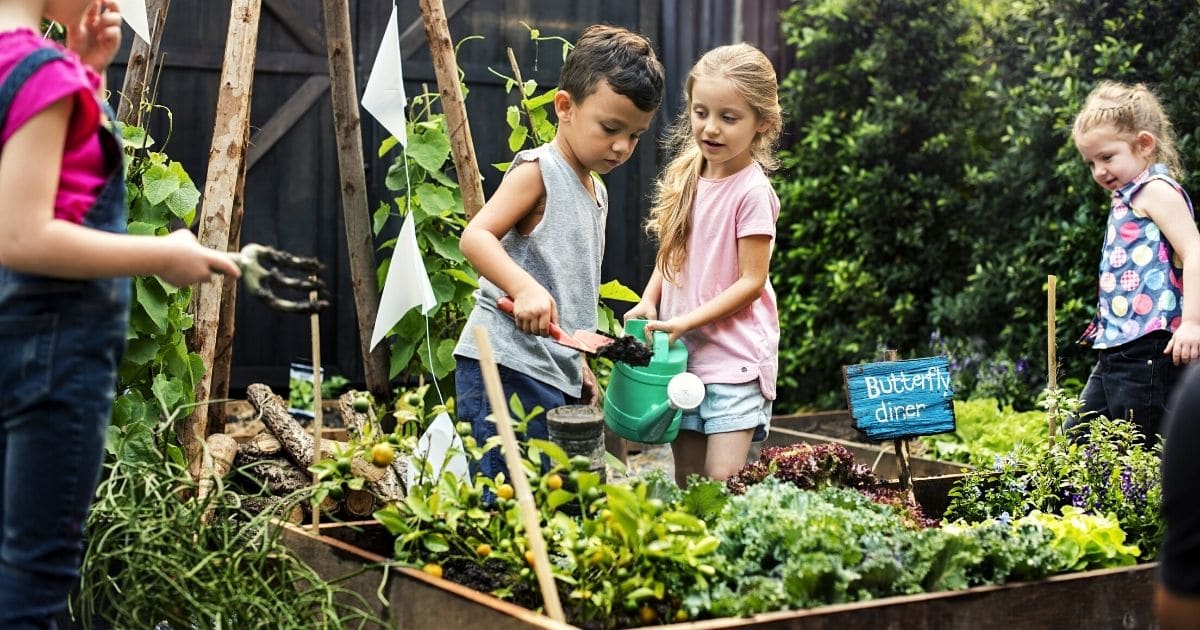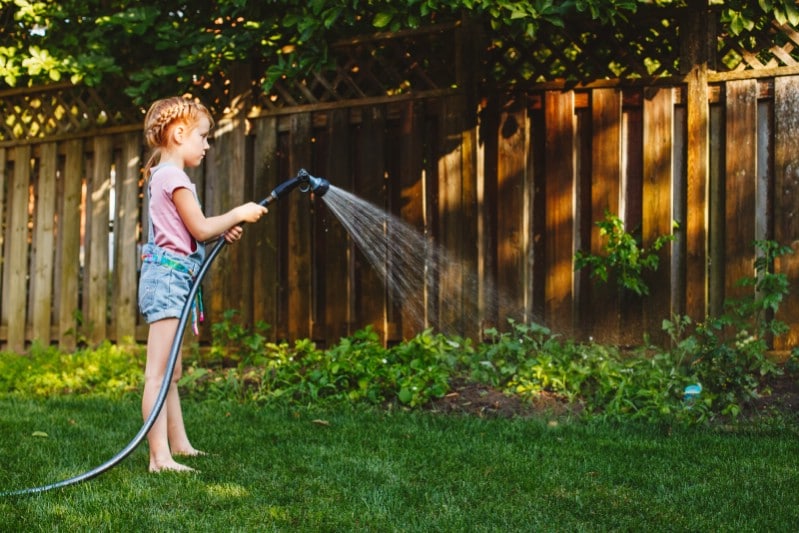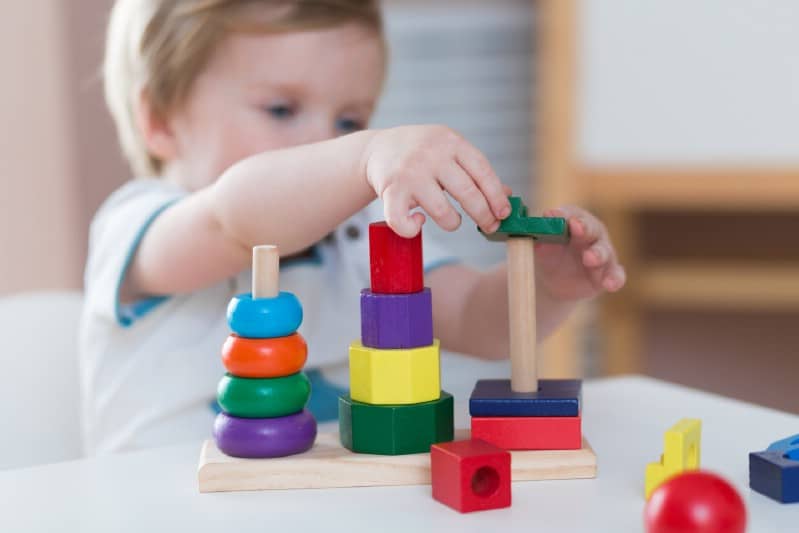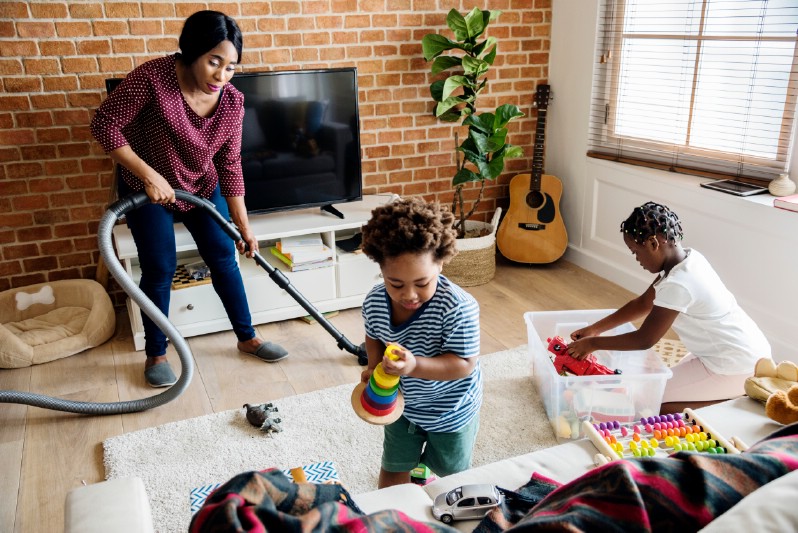Think back to your childhood - what was your least favorite household chore? Whether you were required to do the dishes, mow the lawn, or walk the dog, chances are the experience of having to do chores shaped your childhood in some way.
The value of chores is something that many people take for granted. However, there are many benefits of raising your kids to do chores. You may find that your children grow into more successful adults as a result.In fact, a study from the University of Minnesota showed that the biggest predictor of an adult’s success was whether he or she started participating in household chores at the age of three or four.
Here are some of the top ways that chores can help turn kids into productive adults.
Ways Chores in Childhood Can Lead to a More Successful Adulthood
They Instill A Sense of Responsibility
More than anything else, chores are valuable tools when it comes to teaching responsibility. Not only will your child feel personally responsible for the functioning of the family on a day-to-day basis, but chores can also help kids feel more self-reliant. This is especially true if you require your children to do chores that will affect them personally, like folding their own laundry.They Teach Life Skills
Your child won’t be a kid forever. It’s important to teach life skills at an early age, and it’s best if these are taught in an authentic way. One of the best ways to teach life skills, like cooking and doing laundry, is by having your children help out around the house. These Are important skills that often aren’t taught by skills - it’s up to you to prepare your children for adulthood.Some chores can teach other skills and knowledge sets, too. For example, having your child help in the garden can teach him about biology. Cooking dinner can teach a few things about chemistry. There are all kinds of skills and lessons to be learned in some of the most (seemingly) mundane household tasks.
Chores Promote Teamwork
You probably know, as an adult, how good it feels to be a productive member of a team. There’s nothing quite like requiring your child to do chores that can instill this sense of teamwork. Chores not only teach the value of collaborating with others to get a job done, but they offer a safe learning environment for kids to do so, too.It Can Help With Gross and Fine Motor Skills
For young children, there is another tangible benefit of doing chores - it helps them develop physically. There are plenty of opportunities for kids of all ages to get involved in housework. They can dry dishes, rake dirt, or even dust and sweep. Working with your hands is one of the best ways to develop crucial motor skills.They Can Reinforce Respect
Looking back, did you ever take everything your parents did for you for granted? It takes moving into adulthood for many people to fully realize everything their parents did around the house. When you assign chores to your children, you may help them reach this realization a bit earlier. They might become more aware of the messes they make, for example, if they’re required to clean them up themselves.Chores Develop a Strong Work Ethic
Everybody, from teachers to bosses, values a strong work ethic. It’s important that you instill a work ethic in your children from a young age, but often, this can’t be done with verbal instruction alone. You need to engrain that work ethic in your child by requiring him or her to complete chores.To kill two birds with one stone, you might even consider paying children for a job well done or tying chores to a reward, like an allowance. This may spark an entrepreneurial spirit and drive that will likely remain with your child throughout the rest of his life. It can also teach your kid about the value of money.
They Improve Time Management Skills
As you already know, there are a million different things that need to be done each day, and fitting each one of them into an already-packed schedule can be a major challenge. Chores can help your kids build solid time management skills from an early age. This will help with meeting deadlines at school and handling various social commitments, too.
Chores Can Teach Consequences
How frustrating is it to finish mopping the floor - only to have your children walk in with muddy shoes on, ruining all of your hard work? If you assign kids to do their own chores, they will likely learn firsthand the impact of their actions - and they’ll learn this quickly. Try giving your child a chore of cleaning something they frequently dirty - they’ll learn that their actions have consequences almost immediately.
Chores Teach Delayed Gratification and Patience
Today, it is so common for kids to feel the need to be entertained and rewarded every waking moment. We live in a culture of instant gratification. However, there's a lot to be said about having to wait - especially for the best things in life.
Whether you choose to reward chores with an allowance or some other kind of tangible (or intangible) benefit, chores can help teach the value of working toward something without getting an immediate reward.
Doing Chores Can Boost Self-Esteem
When you get something done - and you are able to do it well - you will experience a surge in self-confidence. It doesn’t matter what the task might be. Getting stuff done makes you feel good about yourself! This can help build a strong work ethic and also encourage independence, along with self-esteem.Chores Can Keep Your Kids Busy
You don’t have to spend every waking hour of your kids’ days with chores. However, there’s nothing good about having idle hands. Keep your kids busy and active by giving them some chores to do - you won't have to hear the telltale whine of, “I’m bored” anytime soon!They Show the Value of Organization
It’s easier not only to find the things you need but also to think clearly (and get things done!) when you are organized. If you can get your children into the habit of picking up after themselves, you’ll help them build a routine that will serve them well throughout the rest of their lives. It can lead to a greater sense of peace and serenity, too.
They Let You, Bond, as a Family
Few people actually feel as though they are able to spend enough time with their family each day. While some people lament the fact that chores eat up valuable time they could be spending with their kids, enlisting the help of your children to complete those chores will allow you to check off items on that to-do list while also enjoying good quality time.Chores Make You Happier
Wait...what? You might be shocked to read this tip. However, chores in childhood can lead to happier, more well-adjusted adults. The willingness to do work in childhood has been linked to better mental health in adulthood than a myriad of other factors, including family issues and social class.
They also tend to have better relationships. This is probably because doing household tasks together teaches children about how important it is to contribute to their families. This can lead to a greater sense of empathy.
So even though your kid might grumble when you hand him the vacuum, don’t worry - you’re actually doing him a favor.
How to Start Raising Your Kids to Do Chores
All of those benefits sound great, you might be thinking, but how do I actually convince my kid to get off the couch and start pulling his weight?
Starting at a young age is the easiest way you can convince your child to do chores - they are more likely to be willing participants at an earlier age. However, it can be tough to motivate kids of any age to do chores, particularly because they tend to be lacking in judgment, impulsive, and somewhat self-absorbed.
You can encourage your kids to do chores by setting the tone and being a good role model. Try not to send the message that chores are boring and something to be avoided. Instead, encourage your kids to participate by assigning them small tasks that they can complete by themselves. You may want to set up a chore chart or a similar method of organization to keep everybody on track.
Kids of all ages can start doing chores - you don’t need to wait until the teenage years to start. A child as young as two years old can start putting their own toys away, putting away their laundry, or putting away clean dishes.
Don’t be afraid of setting rewards for the completion of various chores, either. There’s nothing wrong with incentivizing hard work! For some kids, motivation to do chores is something that needs to start out extrinsically motivated before there is an intrinsic drive there, too.
In the short term, your kids might not thank you for requiring them to do chores. However, rest assured that chores will help teach your kids the life skills and responsibility they need to become successful adults.


















Leave a Reply